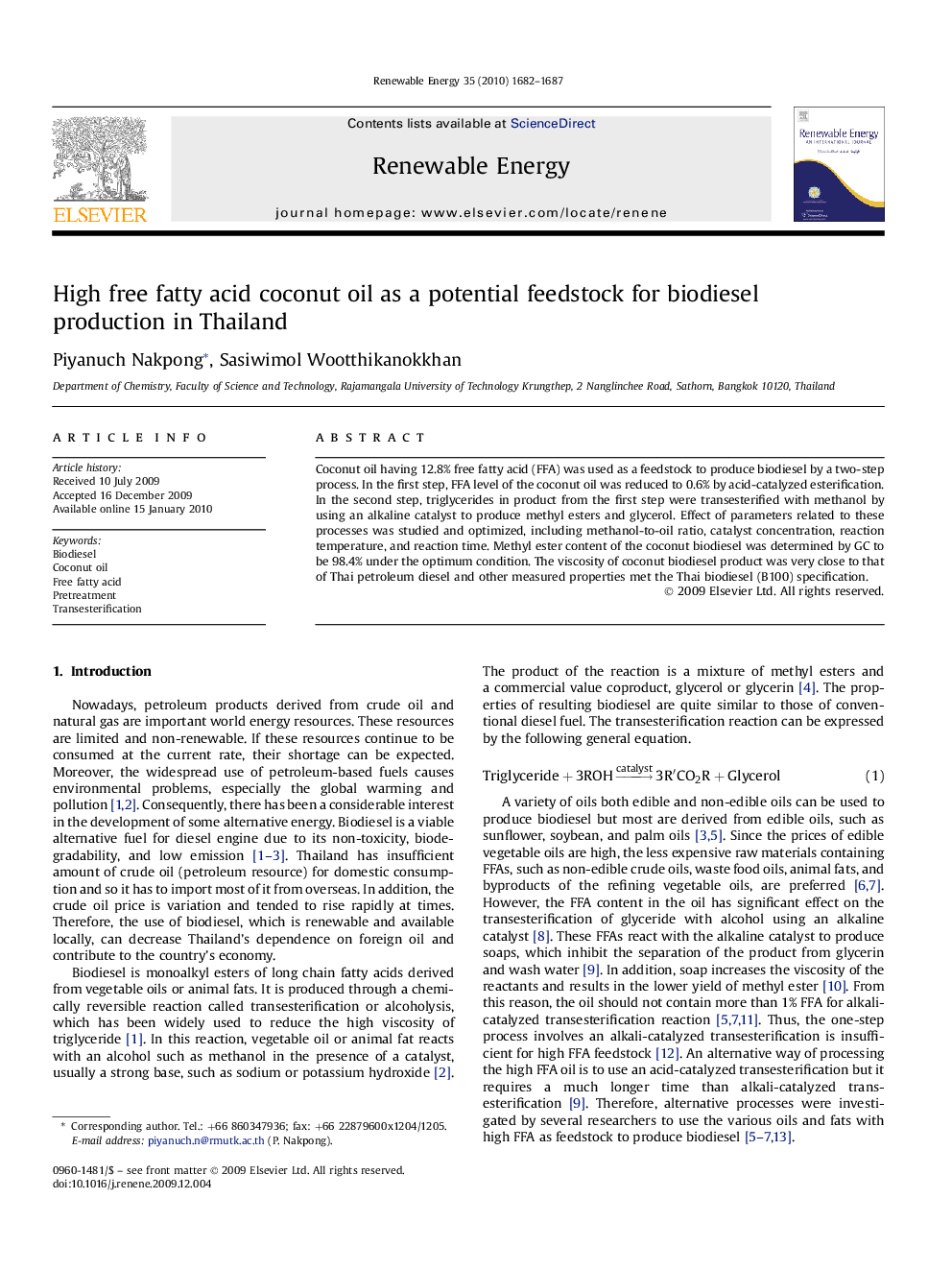| Article ID | Journal | Published Year | Pages | File Type |
|---|---|---|---|---|
| 301755 | Renewable Energy | 2010 | 6 Pages |
Coconut oil having 12.8% free fatty acid (FFA) was used as a feedstock to produce biodiesel by a two-step process. In the first step, FFA level of the coconut oil was reduced to 0.6% by acid-catalyzed esterification. In the second step, triglycerides in product from the first step were transesterified with methanol by using an alkaline catalyst to produce methyl esters and glycerol. Effect of parameters related to these processes was studied and optimized, including methanol-to-oil ratio, catalyst concentration, reaction temperature, and reaction time. Methyl ester content of the coconut biodiesel was determined by GC to be 98.4% under the optimum condition. The viscosity of coconut biodiesel product was very close to that of Thai petroleum diesel and other measured properties met the Thai biodiesel (B100) specification.
